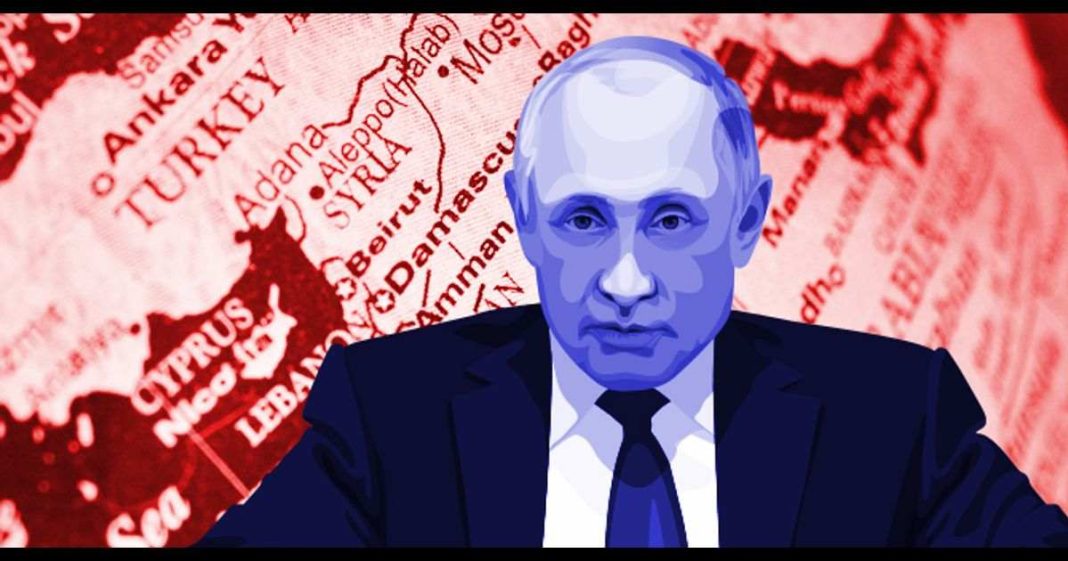Russia’s Vladimir Putin has denied plans to attack Ukraine for months, but on Thursday he announced a “special military operation” in the Donbas region of the nation. Following the statement on live television, reports of explosions in Kyiv, Ukraine’s capital, and other regions of the country emerged.
Mr. Putin’s latest moves came only days after ripping up a peace pact and ordering soldiers into two rebel-held eastern regions to “keep the peace,” as he put it.
In recent months, Russia has placed at least 200,000 troops along Ukraine’s borders, raising worries that this is the start of a new invasion. What happens next might put Europe’s entire security system in jeopardy.
Read more: Indian Govt launches ‘Operation Ganga’ to rescue its citizens in Ukraine
Where are Russian troops being sent and why?
When Russia invaded Ukraine in 2014, pro-Putin separatists captured large swaths of the east and have been fighting Ukraine’s army ever since. Although an international peace agreement was signed in Minsk, the violence continues, and Russia’s president has announced that troops will be sent into two rebel-held districts. Russia’s usage of the term “peacekeepers” has been emphatically condemned by the UN Secretary-General.
The West believes Moscow is preparing a military invasion of Ukraine, a 44-million-strong country that shares borders with both Russia and the European Union. For starters, there have been rumors of tanks arriving in separatist-controlled Donetsk, and the most recent satellite photographs show Russian troops stationed near Ukraine’s borders.
President Putin warned Ukraine that if it did not stop the fighting in the east, it would be held responsible for more deaths. However, a succession of phony incidents have already occurred, and any of them might be used as a pretext for a Russian strike.
Read more: Russia on high nuclear alert as Ukraine resists invasion
Why Putin is so interested in Ukraine?
Russia has long opposed Ukraine’s accession to European institutions, including NATO and the European Union. Mr. Putin has now argued that Ukraine is a puppet of the West and that it was never a real state in the first place.
He wants guarantees from the West and Ukraine that Ukraine would not join Nato, a 30-nation defensive alliance, and that it will demilitarise and become a neutral state.
Ukraine has extensive social and cultural ties with Russia, and Russian is widely spoken there, but those ties have deteriorated since Russia invaded Ukraine in 2014.
When Ukraine’s pro-Russian president was overthrown in early 2014, Russia launched an offensive. More than 14,000 people have died as a result of the battle in the east.
Until recently, Russian proxies have ruled the so-called people’s republics of Donetsk and Luhansk.
Russian troops are for the first time recognised as stationed there, and they can even develop military bases, thanks to Mr Putin’s proclamation recognising them as autonomous.
The possibility of outright war increases dramatically when Russian forces are deployed to a region where hundreds of ceasefire violations occur every day. Under the Minsk peace accords, the two rebel enclaves would have had a special status within Ukraine, but Mr. Putin’s move prevents that.
What makes the situation even more frightening is that the two rebel statelets are claiming all of Ukraine’s Donetsk and Luhansk regions, not simply the little territory they control. “Didn’t we recognise them, and this is why?”
Read more: Ukraine: Lessons that are not being learned
Russia has already prepared the ground for war, with false accusations that Ukraine committed “genocide” in the east. It has handed out more than 700,000 passports in rebel-run areas, so any action could be justified as protecting its own citizens.
How far will Russia get what they want?
President Putin may stop at tearing up the peace accords in the east. He has in the past only spoken of “military-technical” measures if he does not get what he wants and Moscow previously insisted “there is no Russian invasion”.
But the chances of a diplomatic solution do not look good and the West fears he will go further. US President Joe Biden has warned: “We believe they will target Ukraine’s capital Kyiv, a city of 2.8 million innocent people.”
Will the US be able to stop Russia?
The US is looking at Russia’s financial institutions and key industries; the EU is focusing on Russian access to financial markets and the UK has warned “those in and around the Kremlin will have nowhere to hide”, with restrictions imposed on Russian business accessing the dollar and pound.
The ultimate economic hit would be to disconnect Russia’s banking system from the international Swift payment system. But that could badly impact the US and European economies.
Meanwhile, 5,000 Nato troops have been deployed in the Baltic states and Poland. Another 4,000 could be sent to Romania, Bulgaria, Hungary and Slovakia.
Close watchers of Putin have long believed that Russia has prepared for more sanctions and that Moscow has a bigger plan in mind when it comes to Ukraine, a hypothesis apparently being proven by the latest events in Ukraine.
Read more: Why Ukraine’s crisis has convinced Pakistan to maintain a strong defense force?
Russia’s latest actions have drawn international condemnation, with the U.S, EU, Japan, Australia and the U.K. all announcing new sanctions on Russia, although the country has already lived under sanctions for its Crimea annexation, 2016 U.S. election interference, cyberattacks and more.
The author is a research associate and sub-editor at GVS. She has previously worked with Express-News Islamabad. She can be reached at az.aeliya@gmail.com. The views expressed in this article are the author’s own and do not necessarily reflect Global Village Space’s editorial policy.














